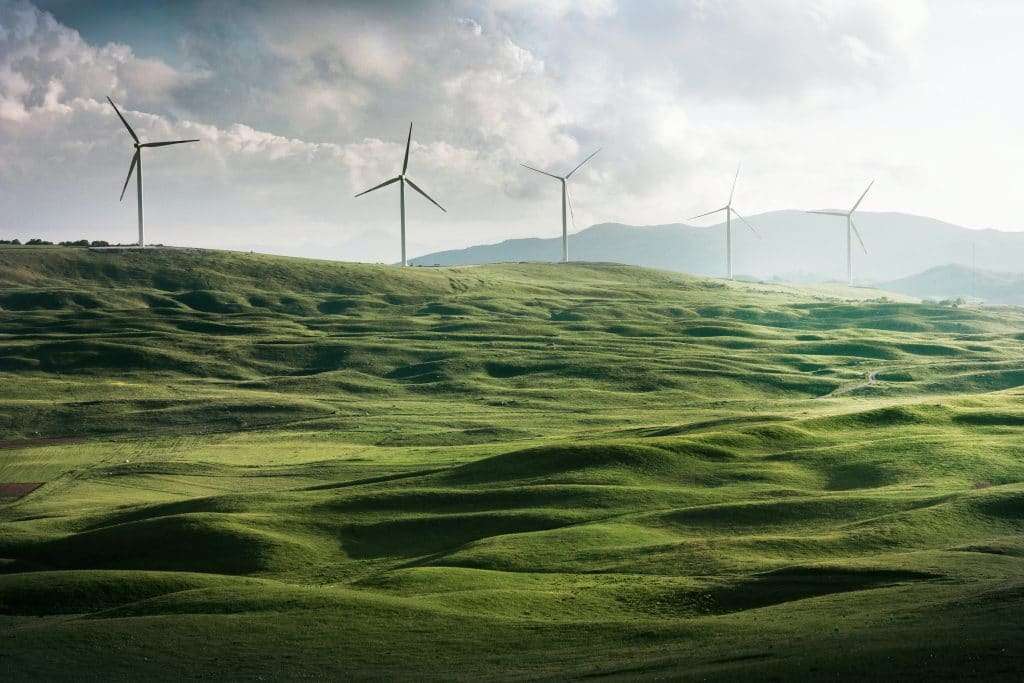It’s appearing more and more in our daily lives from energy to food to fashion. But what does ‘eco’ really mean?
Nowadays, it’s not just cool to be kind to the planet, it’s imperative. Every year, there are new warnings from scientists about the dangerous impacts of the climate crisis, as well as the plastic clogging up our oceans. Without a doubt, the responsibility for protecting the environment falls largely on the shoulders of corporations and governments. But most consumers also understand that their choices can make a difference.
In 2021, one GreenPrint survey found that 78 percent of U.S. consumers are more likely to buy a product if it is labeled as environmentally friendly. But it also found that while 64 percent would pay more for the opportunity, they also don’t know how to identify if a product is truly better for the planet. And it’s unsurprising.
Terms like “green,” “sustainable,” and “environmentally-friendly,” are used so much, without any real regulation or definition, it’s difficult to know what you’re buying. “Eco” and “eco-friendly” are two terms also commonly used on packaging. But what does it actually mean to be eco? Does it equal “sustainable?” And how do you know, for sure, that a product isn’t environmentally damaging? Let’s dive in.
What does ‘eco’ really mean?
Eco is actually an abbreviation, short for the word “ecology.” It refers to the relationships between organisms (including humans) and the environment. But as an adjective, it usually implies that something is not harmful to the environment.
For example, a hotel might be marketed as eco, which means it tries to employ practices that are respectful of its natural surroundings. It may be powered with renewable energy, or follow low-waste practices. When used in reference to a car, eco or eco-friendly implies that it emits fewer emissions than a regular vehicle.

But as there is no legal definition of eco or eco-friendly, these terms can be used in several different ways to refer to several different practices. A hotel that markets itself as eco for being low-waste, may also serve beef every day in its restaurants, for example. The latter is linked with significant greenhouse gas emissions and deforestation.
In its Green Guides, which have been designed to help businesses and consumers with environmental marketing claims, the U.S. Federal Trade Commission (FTC) advises that brands avoid broad terms like “eco-friendly” or “environmentally friendly” completely.
“Claims are likely to suggest that the product has specific and far-reaching environmental benefits,” the FTC notes. “Very few products, if any, have all the attributes consumers seem to perceive from such claims, making these claims nearly impossible to substantiate.”
Is eco the same as sustainable?
As well as eco, another term often used in marketing or the media is “sustainable.” While it is often used interchangeably with eco or eco-friendly, sustainability actually means that something can be maintained over a long period of time. It can refer to several different factors of society, like the economy, but it is frequently used to imply a product contains materials that do not pillage the earth’s natural resources.

For example, cork is usually referred to as a sustainable material. That’s because every time the bark is harvested from the tree, it regenerates. This means that it can be used over a long period of time, without having to cut down the tree or destroy the environment.
But again, just like eco, the terms sustainable or sustainability can be used by brands in different ways. This inevitably causes confusion for consumers. It might mean one part of a product is more sustainable, or it could mean the whole supply chain. Often, claims regarding the environment or sustainability are deliberately vague or misleading, and this is called greenwashing.
How to spot greenwashing
In a nutshell, greenwashing happens when a company tries to market itself as better for the environment than it actually is.
Several brands have been caught greenwashing. H&M, for example, has faced more than one lawsuit. It was accused of misleading consumers to believe that some of its clothing was more environmentally responsible than it actually was. (Let’s not forget, H&M is one of the biggest players in the environmentally destructive fast fashion industry.)

Governments are working on cracking down on greenwashing. In fact, a proposed E.U. directive aims to see generic or vague claims about environmental performance banned. But until then, the best way for consumers to figure out if they’re being greenwashed is to look for legitimate certifications.
If a product has an “eco” or “eco-friendly” label on the packaging, search for evidence to back this up. Companies that are certified B-Corporations have to demonstrate and prove their commitment to responsible social and environmental practices. And if you see the Ecocert stamp, this means that the brand has been audited to ensure its practices match up to any “eco” claims.
The bottom line is: don’t take anything at face value. It’s easy to slap “eco” on a label without any proof. But, with a little bit of extra research, you’ll soon be able to tell if this is really the truth or just plain greenwashing.
Related on Ethos:


